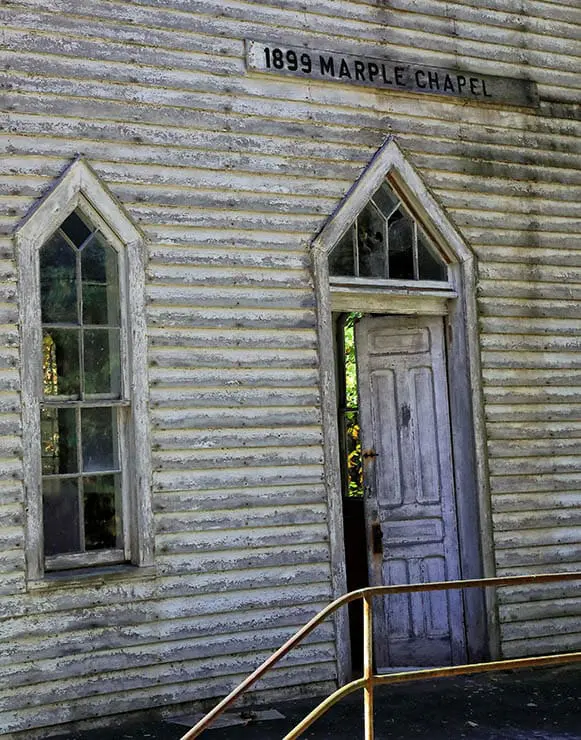
Last time, I shared a Father’s Day message titled “Praise God from whom all blessings flow” and discussed how God the Father has blessed me my entire life. My ongoing Revealing God’s Glory testimony is another of those blessings. I not only get great joy in sharing how God works in my life or in others as I write about them, but, more importantly, it affords me the opportunity to serve Him by pointing people to Christ or encouraging someone to grow in the Lord. Those of us who have come to know Jesus as our Lord and Savior, converted Christians as they are known in the Book of Acts, are called to do His work using the unique gifts that we each have been given. No matter what gifts we have been given, we are all called to be encouragers. God’s word is full of encouragement. It is one of the main themes throughout the New Testament and is used over one hundred times. It was also fundamental to Paul’s ministry as he worked to encourage new converts to grow in Christ. His letters contain almost eighty uses of encouragement in various settings to help early believers mature in their faith and enable them to do the work of the Church. Here are a couple examples from Paul’s letters:
“Therefore encourage one another and build each other up, just as in fact you are doing.”
1 Thessalonians 5:11 (NIV)
“But encourage one another daily, as long as it is called “Today,” so that none of you may be hardened by sin’s deceitfulness.”
Hebrews 3:13 (NIV)
Why such an emphasis on encouragement? I believe it is because God wants us, His followers, to communicate Jesus’ encouragement to others just as the Apostles and early Saints did to the early converts. He expects us to communicate His truth and hope in such a way that will uplift, i.e., encourage, others to follow His will for their lives. Once again, that was as true in the early Church as it is today. God’s work doesn’t change, at least until Jesus returns. The Church would have never lifted off the ground without the Holy Spirit working through others. Now, it is our turn to be the spiritual encouragers. Before I elaborate on what I believe God expects of us, let’s step back and examine the importance of encouragement in general. I’ll start with an example of how a simple act of encouragement impacted my life and ultimately led to my writing about God’s Glory.
Long ago, in the fall of 1958, I was a shy, introverted sixteen-year-old junior in high school. I had only been living in America for four years. Back then, all I wanted was to be seen and not heard. That was my comfort zone; no attention, please! One day, it came time for the annual high school speech contest. I’m sure I thought there was no way I was putting myself through that. Then Mr. Haught, my English teacher, approached me about trying out. You see, my older brother had won the contest in 1956 and 1957. Derek was much more confident than I and relished the spotlight. Mr. Haught thought it would benefit me and encouraged me to do so. Against all instincts, I relented. It turned out I actually enjoyed writing the speech. Still, I was terrified to present it, as I hated standing up in front of others and speaking. To my surprise, it went well, and I managed to be one of two from my class section selected for the final junior class tryout of eight students. Unfortunately, they scheduled the tryout to identify the two junior class representatives for 7:00 p.m. on a weekday evening. I couldn’t make that time because I worked full-time at a local bowling alley from 6-11:00 p.m. Mr. Haught tried to have me present after school one day, but other teachers voted against that. The presiding teacher, the senior class English teacher, supposedly remarked that “his brother probably wrote it for him anyway.” At that time, my brother was away at college, and I would not have allowed him to do that anyway, as we were always very competitive. I was very disappointed I wasn’t allowed to try out. I didn’t bother in my senior year as that teacher never seemed to like me much. I never received any encouragement from her. I remember being jealous of the kids she liked; she always had time for them.
Three years after graduation, I had saved enough money to go to West Liberty College, where my oldest brother Ted was a senior and would eventually be the top graduate earning a Woodrow Wilson Scholarship to study at the University of Illinois. Today, Ted’s portrait hangs at West Liberty as one of its distinguished alums. I took freshman English, and like all students, we were all required to write a term paper. When I got my paper back, it was an A+ with a note that read, “Excellent work, Alan. If I didn’t know better, I would have thought Ted wrote this for you.” In talking with her later, she encouraged me to write as much as possible, which I have done. Early in the Air Force, I got noticed for my writing ability, which led to many writing assignments over the years. I was once tasked with writing a major manual for my career field that was used across the Air Force. In my last assignment at the Pentagon, I often wrote or critiqued speeches and letters for our commanding two-star general. For sixty years, I jumped at the opportunity to write. Occasionally, I would think about my senior high school teacher who blew an opportunity to encourage a shy young man. But I was always thankful to Miss Tucker (no relation) for encouraging me to write as much as I could. A few years ago, Angela, our Glory Magazine editor, asked if I would share my testimony with you, our readers. Today, I am amazingly blessed to have the opportunity to write for the greatest teacher of all time, Jesus, and to share His encouragement for yours and my life. Thank you, Miss Tucker, for unleashing the potential you saw in me.
When I look at my life, I can see so many Miss Tuckers, male and female, who inspired, fostered, emboldened, and positively challenged me. Yes, many, like my senior English teacher, couldn’t be bothered, and yes, there were the toxic, negative people who would rather tear down, criticize, and throw cold water at every opportunity. They are all around us. I chose early in life to ignore those kinds of people and listen more to those who were willing to influence me in a positive manner to grow. I relished those nudges of encouragement. They were the fuel that fired my engine. Most of you reading this can probably identify with people who helped you along the way, those who encouraged you either directly through their timely words and tone of voice or by observing how they lived their lives. We look fondly at those who positively impacted us, as Miss Tucker did for me. Sadly, many people don’t realize their dream or miss out on opportunities due to “the discouragers” around them. Then there are those who, for whatever reason, just don’t have the kind of positive role models or caring people in their lives who can make a difference for them. How sad it must be to grow up and rarely get any encouragement. Also, sadly, some people fall short of who they could become because of their pride, i.e., they think they know it all. They are usually the ones doing all the talking and not enough listening and reflecting. They tend towards being a negative influence unfortunately. Those of us who have been the beneficiaries of encouragement are very fortunate, which should make us very proactive in our own encouragement behavior. If we choose otherwise, then we turn out to be selfish and unworthy of the kindness extended to us.
While encouraging behavior is such an important element of life in general, it is even more important to those who accept Jesus as their Lord and Savior. It has always been that way since Jesus walked this earth, was crucified, died, was buried, rose from the dead, and ascended into Heaven. During His three years on earth, the disciples received His encouragement daily and observed His miracles firsthand. They left their lives, careers, and families to follow Him. He tried to tell them that He would die and would be resurrected. But they never fully grasped that. When He rose from the grave, they eventually saw and interacted with Him and began to get an inkling. Then came Pentecost, when the Holy Spirit descended on the Apostles and other followers, equipping them to do God’s work, His will. It was, in essence, the beginning of the Church’s mission here on the earth.
So there the disciples were, full of the Holy Spirit, trying to discern how to proceed. But first, they needed to reassure other followers, as many were new to their faith and needed to be encouraged to not lose hope, and to stand firm in their walk with Jesus. Many followers fled far away in fear of the Jewish leaders and tyrants like Saul from Tarsus, who led the persecution of the Christ converts. Saul was there at the stoning of Stephen, one of the early Saints whose last words were, “Lord, do not hold this sin against them”(Acts 7:60). This gruesome act and Saul’s reputation had followers scattering in every direction. Not long after that, he was sent to root out the Jesus’ followers who had fled to Damascus. Saul was more than happy to do so: “Breathing out murderous threats against the Lord’s disciples,” he secured approval from the high priest to round up “all who belonged to the Way,” take them prisoner, and return them to Jerusalem (See Acts 9:1-2).
We know what happens next. Saul is struck down on the road to Damascus, is blinded, meets Jesus, who asks him, “Why are you persecuting me?” and subsequently goes to Damascus, as instructed by Jesus, to become converted and filled by the Holy Spirit. He was immediately baptized and commanded to “proclaim Jesus to the Gentiles as well as to the Jews.” Wow, the meanest dude in the East, the one that Jesus’ followers feared the most! Who is going to believe that this tyrant is now a willing, humble servant of God! Not many! But his initial preaching astonished those in Damascus. He even baffled Jews by proving that Jesus was the Messiah. How in the world could this be? The most rabid Jesus-hater becomes one of his greatest ambassadors, an Apostle no less? The only thing I can tell you with certainty is, “with God, all things are possible.” (Yes, I borrowed that from Scripture, but I can’t say it any better, and you don’t mess with perfection.) Now the tide had turned; the predator had become the prey as the Jews wanted Saul’s head. He secretly hightails it to Jerusalem, hopefully for the protection of the Apostles. But unfortunately for him, they were still afraid of him, too, and were not about to let the fox in their sanctuary. What to do? Hated by most Jews in the city and feared by Jesus’ followers, there was no one he could turn to. He needed a friend, he needed a mentor, he needed someone who was “a good man, full of the Holy Spirit and of faith” (Acts 11:24). God knew whom he needed: Joses (Joseph), a Levite from Cyprus (See Acts 4:36).
Unlike Paul, we don’t know much about Joseph’s conversion. We know he lived on the island of Cyprus and belonged to the tribe of Levi, who was responsible for duties with the sanctuary. Some suggest he was a learned man and a teacher of the law in the synagogue. If such, he may have known or knew of Saul beforehand. We know Joseph was ‘all in’ like many early converts who gave all their belongings to the church to help the poor: “having land, sold it, and brought the money and laid it at the Apostles’ feet” (Acts 4:37 NKJV). He would have had to travel to Jerusalem to do that. It is possible he was at Pentecost because he was full of the Holy Spirit, but that is speculation. We also know that he developed a reputation for encouraging others, which led the Apostles to call him Barnabas–which means son of encouragement (See Acts 4:36). I remember reading a Max Lucado book one time that said something to the extent “how cool it must have been to have the nickname, ‘The Encourager.’” I have also been blessed to know a few people who could have worn that nickname as well.
Barnabus had to have been full of the Holy Spirit to do God’s will. Here was Saul caught between a rock (the Apostle’s fear of him) and a hard place (the Jew’s hatred of his betrayal of the Law). So, in steps, Barnabus risked life and limb to become Saul’s advocate to the Apostles, explaining how Saul had “seen the Lord on the road, and that He had spoken to Him, and how he preached boldly at Damascus in the name of Jesus” (Acts 9:27 NKJV). The Apostles trusted Barnabus, who convinced them of Saul’s conversion. Saul was allowed to remain with them and preach in Jerusalem. Because the Jews conspired to kill him, Saul was then sent back to Tarsus, his home, for safety precautions.
Empowered To Encourage
So far, we have learned about the generosity of Barnabus, where he sold his property to help the poor, and his courage and trustworthiness. He welcomed Saul after learning of his conversion, introduced him, and vouched for him to the Apostles. But there is so much more to Barnabus. He was a teacher, preacher, mentor, and one of the early church’s most effective missionaries. When the church leaders heard that some believers had traveled as far away as Antioch in Syria (the third largest city in the Roman world) and were leading Greeks to the Lord, they sent Barnabus to investigate. Arriving, he was glad to see what the grace of God had done and started doing what he did best, “encouraged them all to remain true to the Lord with all their hearts…and a great number of people were brought to the Lord” (See Acts 11:23-24).
At this point, Barnabus decided he needed help and made one of the most important decisions of his life, which had to have been divinely inspired. He chose to go and get Saul, who had been at Tarsus for a couple of years. Barnabus and Saul would spend a year ministering to believers in Antioch, Gentiles and Jews alike, and preaching the Gospel. Observing Barnabas and Saul, it was during this time that converts were first called Christians. I find it interesting that in a remote area of Syria, the term Christians was first used. While there, Barnabus and Saul became aware of an impending famine in Judea. They would subsequently be trusted with aid to take to Jerusalem.
Barnabus and Saul returned to Antioch, from where they were led by the Holy Spirit to embark on the first of Paul’s three missionary trips. Interestingly, their first stop was Cyprus, Barnabus’ home country. They would then travel to several Roman Empire cities in Asia, preaching first in the synagogues, hoping Jews would accept Jesus as the Messiah. They would not accept the truth and subsequently expelled Paul and Barnabus from their region. Note that it is here where Luke, the author of Acts, replaces Saul’s Hebrew name with his Roman name, Paul, and begins to mention Paul’s name first more often than the other way around. The moment they shook the dust off their sandals when they were leaving the region was when God’s ministry to the Gentiles began in earnest:
For the Lord has commanded us:
“I have set you as a light to the Gentiles. That you should be for salvation to the ends of the earth.”
Acts 13:47 (NKJV)
While Paul would become preeminent in the ministry to the Gentiles, Barnabas would continue to share in the work of transitioning Gentiles to the church. He knew the importance of nurturing those new to the faith and those who struggle with exhibiting the grace of God in their lives. We all need believers full of faith and the Holy Spirit to nurture us in our walk.
Sent To Encourage Others
For the remainder of that first missionary trip, Barnabas would continue to use his unique gift, spiritual encouragement, as he worked alongside Paul. Later, at a specially called Jerusalem Council, the Apostles and elders were glad to hear of their success in converting Gentiles. They sat in silence “as they listened to Barnabas and Paul telling about the signs and wonders God had done among the Gentiles through them” (Acts 15:2). They truly were God’s amazing envoys to begin the preaching the Gospel “to the ends of the earth.” However, as closely as they worked together and respected one another, it didn’t mean they didn’t have disagreements, even sharp disputes. One came about upon the start of the second missionary trip, which caused them to split. Early in the first trip, John Mark (author of the Gospel of Mark) unexpectedly left for unknown reasons. Even though that had happened, Barnabas wanted to take Mark on the second journey, but “Paul did not think it wise to take him, because he had deserted them in Pamphylia” (Acts 15:38). As they separated, Paul continued his planned trip, taking another disciple, Silas. Barnabas and Mark went in a different direction. I think that was God’s plan all along as he began to expand the number of missionaries to reach more people. He knew missionaries needed to learn from his chosen ambassadors (Paul and Barnabas). Paul, who learned from the “Son of Encouragement,” would mentor many, including Silas, Titus, and Timothy.
Mark was a young man when he fled on the first journey. However, Barnabas must have seen Mark’s potential, maybe because Mark was Barnabas’ cousin. I like to think it was a combination of the two. But Barnabas’ patient encouragement and tutelage turned Mark into the man of God he became. Mark completed the missionary journey with Barnabas and eventually went on to assist and minister to both Peter and Paul later in life. Then, he would become one of the first to document Jesus’ life in writing, all because Barnabas didn’t write him off for his youthful mistakes. I am glad I wasn’t written off for my lifetime of mistakes; as I said earlier, “with God, all things are possible.” And I am grateful that God put good men and women, full of the Holy Spirit and of faith, in my path, to steer me in the right direction. It leads me to raise my arms in worship and sing “praise god from whom blessings flow!”
What an impact Barnabas had on the life of the Church. As the “Son of Encouragement,” he was one of its first converts; he was called to be a missionary (see Acts 13:2-5); he was the first, along with Paul, to be called a Christian; and his work played a pivotal role in the Church’s development in advocating for Paul and Mark and then mentoring them. Because “he was a good man, full of the Holy Spirit and of faith,” he did God’s will and all He commanded. And, because God gave him unique gifts such as generosity, leadership, reconciliation, patience, and, most importantly, spiritual encouragement, Barnabas gave us Paul and Mark. Today, we are blessed to have God’s inspired Word revealed through Paul in his letters and Mark in his Gospel to read, meditate upon, and guide our walk with Jesus.
Today, Barnabas is one of my Biblical heroes. I can’t say that I have heard much about him for most of my life, and that’s been a long time. I started singing in a boy’s choir when I was 10, so that’s a lot of sermons since 1952. Sadly, I was probably zoned out for many of them. However, since being saved, I’ve come to know not only who he is but also to be inspired by his life. He modeled so many Christian values that I believe God wants us to do, also. Simply said, he imitated Jesus, which Paul stressed in his letters that we should all do, “Imitate me, just as I also imitate Christ” (See 1 Corinthians 11:1).
How Do We Model Christ?
- Our lives should be about God’s work in some way. It can’t be talk; it has to be about “the walk,” which is seen.
- We should keep our minds filled with the love and promises of God, not worldly things.
- Our behavior points people to Christ.
- We exemplify the virtues of generosity (time and money). The Church needed both in Barnabas’ time and still does.
- We value missionary work by performing or supporting it. Missionaries are God’s light to the ends of the earth. We’re all not called to be missionaries, but we can further that work by financially supporting those who are called to do it. That’s how we help spread the Gospel to the ends of the earth.
- We are continuously proactive at spiritual encouragement, whether encouraging others in their journey (walk with Jesus) or comforting/consoling those in need. We all know people who are desperate for spiritual encouragement. Some of us have been the recipients of God’s grace through others. We should seek to share His grace with those who need it.
- We are willing to forgive and give second chances as Barnabas did for Mark.
- We are humble and are satisfied to do the work we are called to do. Barnabas did that. He was humble enough to allow those who advanced beyond him (Paul and Mark) to take center stage. He knew their focus was on Christ, not themselves, and he stayed true to his calling.
- We understand everything is for God’s glory and strive for that outcome.
At a minimum, we should all strive to be Barnabas-like and to be known as an encouraging person, not someone who tears down or belittles people. We should be kind in our words and strive to be gracious even when it is difficult. We can’t point people to Jesus or impact their growth by making them feel inadequate. Around us, there are far too many people who discourage others. Let that not be us. But instead, let us be a light to the people we encounter. Paul said this better:
“Do not let any unwholesome talk come out of your mouths, but only what is helpful for building others up according to their needs, that it may benefit those who listen.”
Ephesians 4:29 (NIV)
Dear friends, it has been a joy to share how God inspired a young Jew who lived so far from Judea back in the early days of the Church to become known as the “Son of Encouragement” and one of the central figures in spreading the life of Jesus and the hope of salvation to the ends of the earth. If you are a Christian like me, who didn’t know the importance of encouragement in God’s work, I pray you begin to use it in your walk with Jesus. God wants you to embrace encouragement in your daily life; if you don’t believe me, grab your Bible and start reading the New Testament. You’ll find I speak the truth.
Finally, if you do not know Jesus as your Lord and Savior, I encourage you to invite Him into your heart now and ask Him to forgive you of your sins. Then, seek out a pastor or a Christian friend you know and ask for his or her guidance. If you do that, you, too, can become someone known as a good person, full of the Holy Spirit and faith!
Until next time, Godspeed. Al
Main Feature Image: Stonecoal Lake, Lewis County, WV © Alan Tucker; Article photos: © Alan Tucker; Scripture quotations marked NIV are taken from THE HOLY BIBLE, NEW INTERNATIONAL VERSION®, NIV® Copyright © 1973, 1978, 1984, 2011 by Biblica, Inc.® Used by permission. All rights reserved worldwide.; Scripture quotations marked NKJV are taken from the New King James Version®. Copyright © 1982 by Thomas Nelson. Used by permission. All rights reserved.






